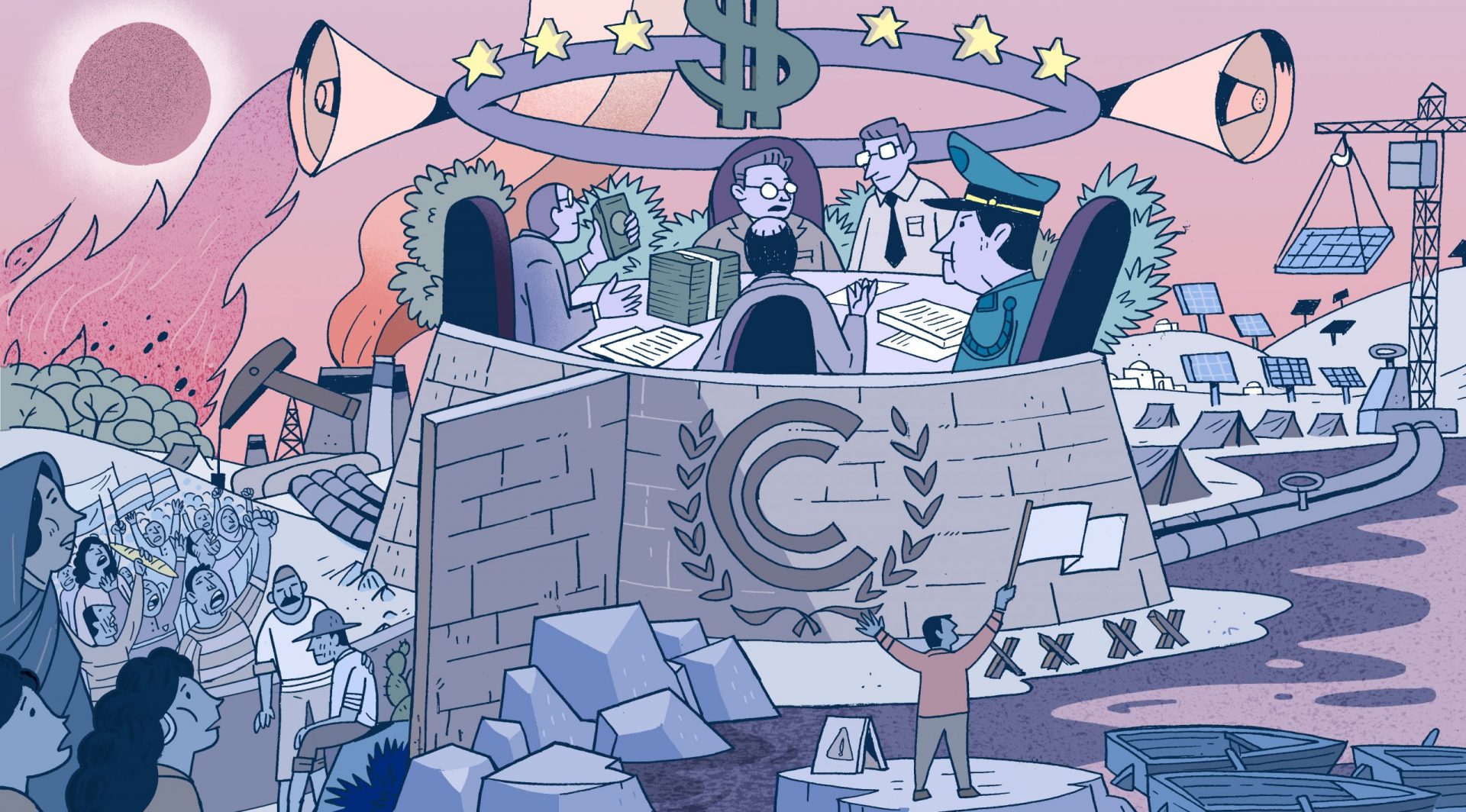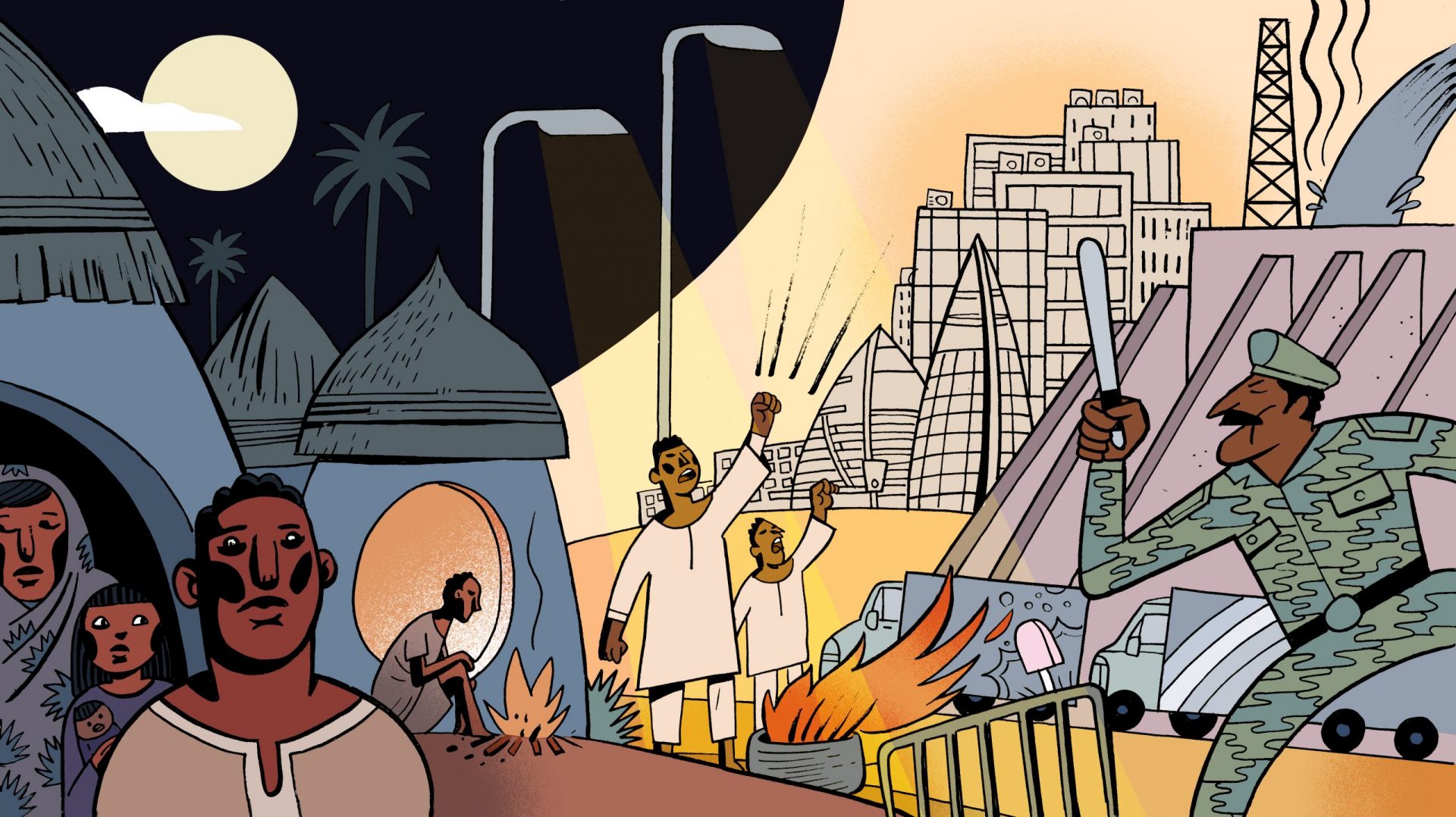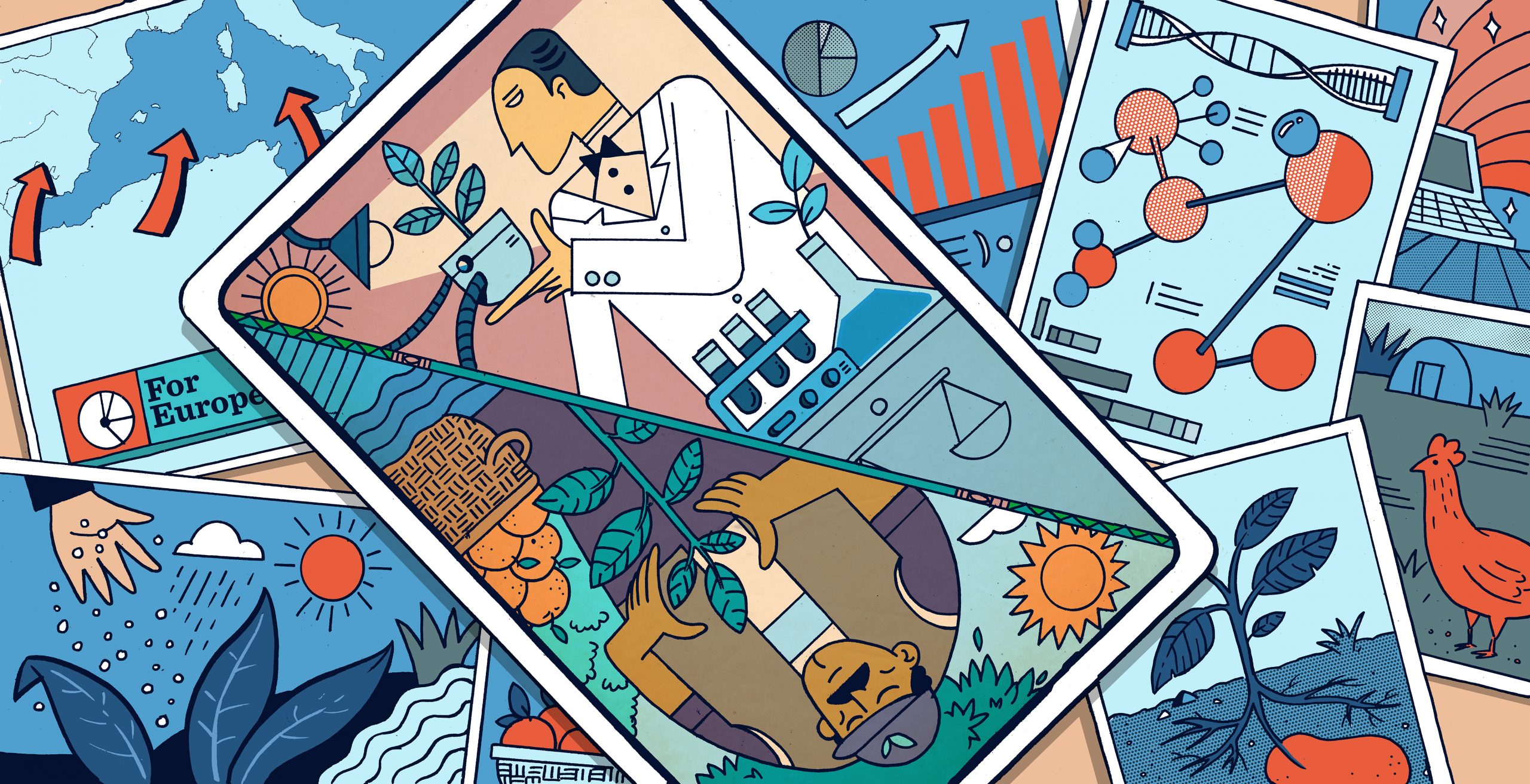|
The climate talks this year (COP27) are taking place in Egypt. North Africa is already experiencing a severe climate crisis with detrimental impacts on people’s lives and livelihoods. Meanwhile the same global hegemonic structures of power that caused the climate breakdown are shaping the response to it.
Was this forwarded to you? Sign up
here
|
|
Dear reader,
The climate talks this year (COP27) are taking place in Egypt. North Africa is already experiencing a severe climate crisis with detrimental impacts on people’s lives and livelihoods. Meanwhile the same global hegemonic structures of power that caused the climate breakdown are shaping the response to it.

A lot of writing on climate change, the ecological crisis and the energy transition in North Africa is dominated by international neoliberal actors. Their analyses are biased and do not include questions of class, race, gender, justice, power or colonial history. Their proposed solutions are market-based, top-down, and do not address the root causes of the climate, ecological, food and energy crises.
This dossier is one attempt to remedy that. It is a collection of essays from various North African countries focusing on dimensions of the energy transition and how to make this process equitable and just. The chapters cover a wide range of countries, from Morocco, Western Sahara, Algeria and Tunisia to Egypt and Sudan.
|
|
|
| |
Introduction: Just in time
The urgent need for a just transition in North Africa
|
|
Hamza Hamouchene and Katie Sandwell
International negotiations on climate action are stagnating at the same moment as climate change is accelerating, with its effects increasingly deadly and undeniable. This Collection is intended as a tool for activists, both in North Africa and around the world, to help them continue posing critical questions and building coalitions, alliances and popular power in support of their own solutions for a just transition.
> Read online
|
|
|
| International finance and the commodification of electricity in Egypt |
|
Mohamed Gad
This article analyses the political economy of the liberalization of electricity prices in Egypt, highlighting the main policy shifts in regard to electricity pricing. It does so by focusing on the role of international finance, including both commercial loans from international banks and financing from international institutions such as the International Monetary Fund (IMF) and the World Bank. The paper demonstrates how the worsening of the energy crisis in 2014 paved the way for a replacement of public by private financing in the energy sector – a process which saw the institutions of national energy production in Egypt shift from public service providers to private company-like bodies in competition with private sector firms.
> Read online

|
|
|
The Moroccan energy sector
A permanent dependence
|
|
Jawad Moustakbal
Find out the historical, economic and political reasons for the dependence of Morocco’s energy sector, which threatens what remains of Moroccan sovereignty and aggravates social inequalities. And how it is that the most deprived populations in the country pay for the political and economic choices made by the colonized elite.
> Read online
|
|
|
‘Renewable’ energy in Tunisia
An unjust transition
|
|
Chafik Ben Rouine and Flavie Roche
While Tunisia is now entering a new energy transition, following its international commitments, almost no debate has occurred at the national level on the redistributive aspects of this transition, which raises serious concerns and crucial questions.
> Read online
|
|
|
The challenges of the energy transition in fossil-fuel-exporting countries
The case of Algeria
|
|
Imane Boukhatem
A just transition in Algeria should be developed with the goal of lowering emissions, protecting the environment, respecting the rights of people to resources and to a liveable environment, and preserving natural resources (including water and land) for future generations, while also improving Algerians’ quality of life by promoting social and economic justice, a fair distribution of wealth, and energy democracy, rather than simply generating revenues from renewable energy exports. To this end, proposals for an energy transition should explore the questions of what energy is used for, and who it is used by, not only the question of its source.
> Read online

|
|
|
The electricity crisis in Sudan
Between quick-fixes and opportunities for a sustainable energy transition
|
|
Razaz H. Basheir and Mohamed Salah Abdelrahman
Over the last few years, the electricity sector in Sudan has been in a state of crisis: 60 per cent of the Sudanese population have been living without electricity. What is the path forward to an urgent, sustainable, and feasible solution?
> Read online
|
|
|
What can an old mine tell us about a just energy transition?
Lessons from social mobilization across mining and renewable energy in Morocco
|
|
Karen Rignall
This essay lays out how power mapping and an account of bureaucratic procedures can help to democratize knowledge around extraction and energy production with the objective of supporting local and regional movements for a just transition.
> Read online

|
|
|
The energy transition in North Africa
Neocolonialism again!
|
|
Hamza Hamouchene
If we are serious about moving beyond fossil fuels, it is crucial to closely examine the linkages between fossil fuels and the wider economy, and to address the power relations within, and hierarchies of, the international energy system. This means recognizing that countries of the global South are still systematically exploited by a colonial, imperialist economy built around the pillage of their resources and a massive transfer of wealth from South to North.
>Read online
|
|
|
An unjust transition
Energy, colonialism and extractivism in occupied Western Sahara
|
|
Joanna Allan, Hamza Lakhal and Mahmoud Lemaadel
Extractivism, just like colonialism, comes in many different shapes and sizes. In the case of Western Sahara, it takes form in not only phosphate extraction, fishing, and sand and agricultural industries. Today, extractivism in Western Sahara is also sustained through renewable energy projects, partly used to ‘greenwash’ Morocco’s occupation of Western Sahara.
> Read online

|
|
|
| Towards a just agricultural transition in North Africa |
|
Saker El Nour
This article looks at the challenges, components and characteristics of a just transition within the agriculture sector in North Africa.
> Read online
|
|
|
|
|
|
On this episode of the State of Power podcast, Hamza Hamouchene unpacks a vision for a Just Transition, with a specific focus on North Africa. Hamza has done research on extractivism, energy democracy, food sovereignty and environmental and climate justice in the North African context. He is also the coordinator for North Africa at the Transnational Institute, where he has recently put together a dossier, a collection of essays from multiple authors, focusing on different dimensions of the energy transition in North Africa.
With this year’s UN conference of the parties, COP27 taking place in Egypt, there seems to be no better time to put a spotlight on the region.
Subscribe to State of Power on
Spotify
,
TuneIn
or
AudioBoom
|
|
|
|
|
Acknowledgements
Illustrations by Othman Selmi
These articles are published with the support of Friedrich-Ebert-Stiftung (FES).
*FES is not responsible for the content, for which the individual authors are solely responsible.
|
|
|
| | | |